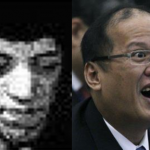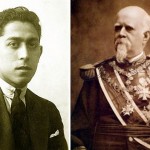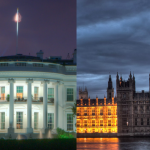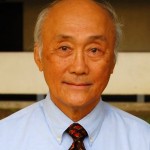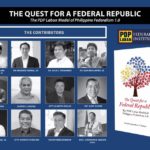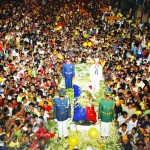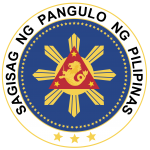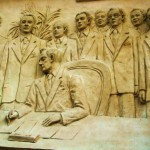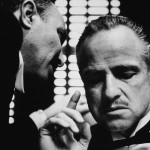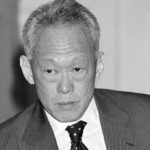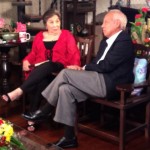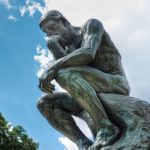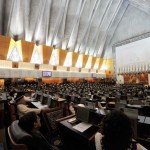Lee Kuan Yew’s Speech at the Philippine Business Conference
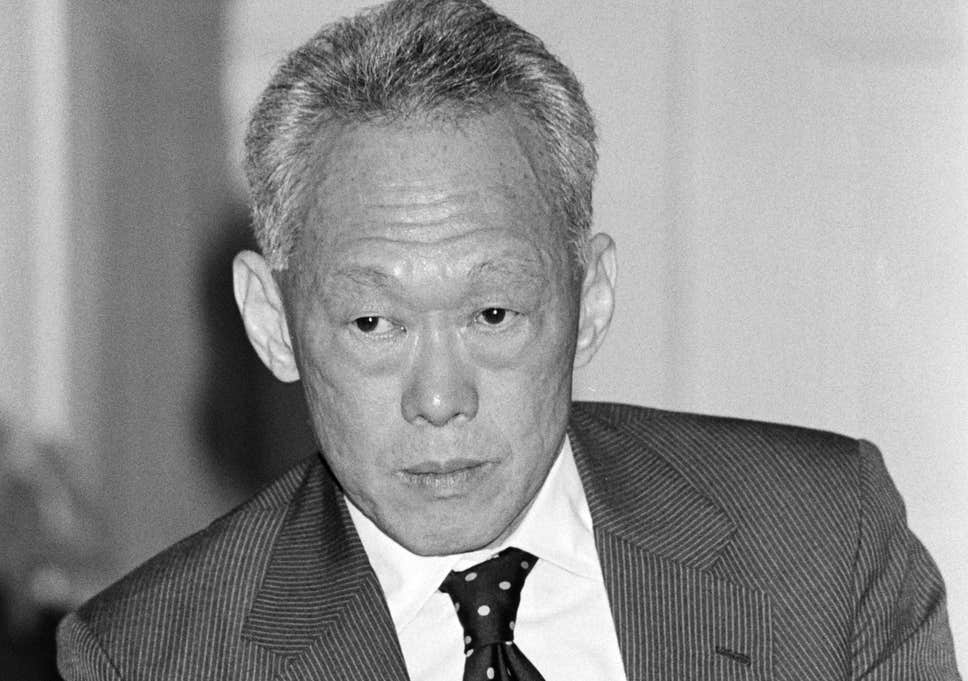
The late founding Prime Minister of Singapore, Lee Kuan Yew, had been invited by the Philippine Business Conference to address them back on November 18, 1992, not long after he had already stepped down as Prime Minister and assumed the more advisory cabinet role of Senior Minister to the new Government led by his successor, Goh Chok Tong.
In this speech, Lee Kuan Yew had clearly given solid bits of advice to the audience as well as to all Filipinos, and it is this particular speech from whence the famous words “I do not believe that democracy necessarily leads to development. I believe that what a country needs to develop is discipline more than democracy” were taken. Some Filipinos wrongly took exception to this in the 1990s, but starting in the late 2000s, Lee Kuan Yew’s wisdom had become much more popular among Filipinos after years and years of mediocre economic progress resulting from our country’s inability to move over to much better ways of doing things.
Among the many things Mr. Lee mentioned was the need for the Philippines to open up to foreign direct investments, something that Singapore had already proven to be much more helpful than harmful, and that it was precisely the in-flow of foreign direct investments and the setting up of factories and offices by multinational corporations that caused Singapore to solve its original unemployment problem and eventually become a First World Nation. Moreover, Lee Kuan Yew also made mention of the inherent weaknesses and disadvantages of the Philippines’ stubborn use of the American-style Presidential System with its gridlock-prone and shutdown-prone Separation of Powers.
The late Lee Kuan Yew had already brought these up back in late 1992, and not long after, former president Fidel V. Ramos himself tried hard to set up the very reforms that Mr. Lee said that the Philippines needed: (1) An economy that is open to foreign direct investments and without idiotic anti-FDI restrictions in the Constitution, and (2) a Parliamentary System which allows for better quality leadership and greater decision-making efficiency.
Singapore is a country that used to be poor and third world just like us. It’s about time we finally learned best practices from them which they have been more than willing to share.
SPEECH BY MR LEE KUAN YEW,
SENIOR MINISTER OF SINGAPORE,
AT THE PHILIPPINE BUSINESS CONFERENCE
ON 18 NOV 92 IN MANILA AT 7.20 PM.
Mr Chairman,
1. When I received your invitation to speak, I hesitated in accepting. You must have known my attitudes from reports over a long time. I concluded that you have invited me because you wanted this conference of leading Filipino businessmen and public figures to hear my frank opinion.
2. Contrary to what American political commentators say, I do not believe that democracy necessarily leads to development. I believe that what a country needs to develop is discipline more than democracy. The exuberance of democracy leads to undisciplined and disorderly conditions which are inimical to development. The ultimate test of the value of a political system is whether it helps that society to establish conditions which improve the standard of living for the majority of its people plus enabling the maximum of personal freedoms compatible with the freedoms of others in society.
3. I knew Filipino politics in the Marcos era as rumbustious. Politicians revelled in democracy, and its freedoms, freedom of speech, freedom of the press, and for those in office, the freedom to wheel and deal. It was politics enjoyed for its own sake. Election campaigns were colourful and entertaining. Candidates made eloquent and stirring speeches. But when it was over, it was back to more wheeling and dealing until the next elections. The implementation of policies did not match their presentation.
4. To bring myself up to date, I asked for the latest press reports on the Philippines. My remarks today are based on published reports. The question I ask is: Can the next six years be better than the past six?
5. The London Economist, July 4, 1992, said: “The challenge for President Ramos is to find the economic growth that will confirm democracy’s future. Here the omens are less good. Almost a quarter of the country’s export earnings go to service a foreign debt of $29 billion; over a tenth of the workforce is unemployed; and inflation which averaged 19% last year, is still running at an annual rate of around 9%. If those figures are to change for the better, the Philippines have to abide by the strictures of the IMF – which means better tax-collecting, painful cuts in public spending and liberalising trade to the detriment of some powerful vested interests.”
6. An example of a powerful vested interest that has to be tackled was reported in Asiaweek, 21 August 1992, the Philippines Long Distance Telephone Company which has had a monopoly for 64 years. The result: “The joke in the Philippines is that 98% of the population are waiting for a telephone, and the other 2% for a dial tone. The nation has only a little more than a million phones for 62 million people. In 1973 the then President Ferdinand Marcos, using his martial law powers, ordered all telephone subscribers to invest in preferred shares of PLDT before they were issued a phone line. With their combined investments and with the value of preferred stock greater than common stock, subscribers in effect own about 92% of the company. What do they get for that? Among the highest phone rates in Asia – only Japan is more expensive – and probably the worst service.”
7. In that same Asiaweek magazine was another article entitled “Kidnappers in Uniform?”: “Police Brig-Gen Raul Imperial counts more than 50 kidnappings last year, netting $7.6 million in ransoms. ‘People are afraid to call the police because the officer may be the mastermind,’ says Representative Hernando Perez. One daily recently suggested that relatives of kidnap victims ask police how much the ransom is.
8. Rigoberto Tiglao in the Far Eastern Economic Review 3 September 1992, wrote: “There were two waves of Japanese capital investment, both driven by the yen’s strengthening: in 1985 and then in 1987. The first period was when the violent overthrow of the Marcos dictatorship seemed to be imminent, discouraging investors. In the second period, the kidnapping of a Japanese executive in the Philippines, which took six months to settle, was enough to abort more Japanese investment plans.” He went on: “The country lost nearly a decade of growth, and as a result, faces so many problems that some people, even some Filipinos, have started to believe that there is a deep-seated self-destructive combination of political and cultural factors cursing the country.”
9. Alas, even nature has been unkind. In 1990 Philippines was struck by a powerful earthquake. In 1991 Mount Pinatubo erupted. And at least one typhoon struck each year.
The Future
10. But whatever the misfortunes of the past, if a fresh start is made, the future can be better.
11. If I were a Filipino, I would count my blessings and start in a positive frame of mind. The Philippines is immensely better off compared to Afghanistan or Lebanon or Sri Lanka. All these three have been torn apart by strife and war, and the contending factions are still killing each other inflicting more damage on their countries instead of repairing the harm done.
12. Unlike these countries, the Philippines can pull itself together and get on with the job. And it has a good chance of success because it is part of a region which is set for high growth. What is needed is confidence, the confidence of investors, Filipinos and foreigners, that the government and the people are determined to get themselves out of the hole they are in.
13. The first task is to restore law and order. There must be a cleanup of racketeers in the police, whether for kidnappings or other crimes. Kidnappings of local Chinese have increased. Three victims, two university students and one businessman, have been killed. Unless these kidnappings stop, most investors will stay away. President Ramos has started to clean up the police and the military. He has sacked some senior police officers and removed others to less sensitive positions. He has asked Congress to reintroduce the death penalty for kidnapping, rape and murder. The legislature and the executive must showed the world that they are determined to reimpose discipline and control in the police and military the key bodies for order and stability.
14. Other crimes especially corruption must be suppressed and punished. It is good that there will be a bill in the House to increase the salaries of government workers by some 500 to 1,250 pesos a month from 1 January 1993. This can be a start of what should be a part of a wider strategy to cut down corruption. If government workers are adequately paid, they deserved to be punished with severe penalties when they take bribes. It is possible to weed out corruption provided the top political leaders must set the example and the pace. An efficient and strong anti-corruption unit under the President with powers to investigate any person however high up, and to carry it to a successful prosecution, will work wonders. The laws against corruption should be tightened to shift the onus of proof on to the person who possesses more assets than his income warrants. Two or three big fish brought to justice successfully, will have a salutary effect on everyone. This has been the experience of Singapore where the Prime Minister is in charge of the CPIB (Corrupt Practices Investigation Bureau).
15. The second task is to free the economy from controls and monopolies. Rigoberto Tiglao wrote in the Review, “It has become obvious to economists now that the ‘nationalist industrialisation’ rhetoric has benefited only a group of inefficient oligarchs – including some heading US-owned firms – from beer brewing to soap manufacturing to appliance assembly. While the Aquino administration had backed down under pressure from lobby groups, and revised its original and more drastic Executive Order 413, the new tariff liberalisation programme will bring down the average effective protection rate for Philippine industries from 25% to 21% over a four-year period ending in July 1995. The tariff barriers had been a major element of an intricate web of regulations that have shackled Philippine entrepreneurs and only nurtured the favoured few cartels and monopolies, from banking and telecommunications to shipping – who have thrived through their privileged access to licenses, franchises and concessional loans.”
16. Tiglao was hopeful: “However, the economic performance of the Philippines’ ASEAN neighbours , which had sought foreign investments, has gradually resulted in the sea change in national attitudes …” There was “easy passage of the Foreign Investment Act of 1991, which basically lifted all restrictions, except those that are in the constitution, on foreign investments.”
17. The experience of Malaysia, Thailand and Indonesia is especially relevant. From the 1950s to the 70s, their policies were like those of the Philippines. They protected their markets to establish import substituting industries. Products were poor and growth was slow because there were monopolies and no competition. By the early 80s, at first, Thailand, and next Malaysia, changed policies. They learned from the policies of the NIEs where foreign investment and export-oriented growth made for booming economies. Thailand and Malaysia started to deregulate and liberalise. They allowed 100% direct foreign investments. They cut down protection and opened up their industries and services to competition. Through the infusion of technology and high quality management from successful countries like Japan, the NIEs, America and Europe their goods and services became internationally competitive. Their economic growth bounced from 3-4% to 8-10% per annum. A few years later Indonesia also changed policies. They are now pressing ahead with deregulation and liberalisation to open up their economy and make their products internationally competitive.
18. Foreign investors would not have gone into Thailand, Malaysia and Indonesia if they had not got their macro-economic policies right. They cut their budget deficits which brought inflation under control. This restored confidence in their currencies. Malaysia and Indonesia have reduced their budget deficits to 2% of GNP or less since 1987, to less than a third of previous deficit levels. Thailand has been running budget surpluses. The Philippines must press forward with fiscal reforms which President Aquino began in 1991 under IMF conditionality. The big problem is that taxes especially income taxes are not collected. Therefore investors fear that the Government cannot control future budget deficits and inflation. Further, if it cannot raise tax revenues, it will be unable to put in place the necessary infrastructure. Next, Filipino savings must and can be raised. Indonesia, with a lower per capita income level than the Philippines, had a national savings rate of 33% in the last five years. The Philippines had only 17%. Indonesia therefore achieved a much higher investment rate of 36% compared to the Philippines’ 20%.
19. The Ramos Administration has started deregulation and liberalisation. These initial moves must be followed up. It has to be systematic with a publicly announced timetable during which the protective barriers enjoyed by the industrial and the services sectors will be dismantled, and foreign competitors allowed in. Then you will find that Filipinos can perform just as well as Singaporeans or Thais or Malaysians. If the Philippines stick to old policies, because vested interests are too powerful to overturn, then Filipinos will continue to lag further and further behind her ASEAN neighbours.
20. If the Ramos Administration can make ordinary Filipinos understand that politics is not simply elections with singing, fiestas and giveaways, but that it is about their lives, jobs and wages, homes, schools, hospitals, the situation can change dramatically. When ordinary Filipinos know that the country’s stagnation and their joblessness is because of vested interests, corrupt politics and general disorder and lack of confidence, they will agitate in support of those who want to establish law and order and discipline, cut high tariffs, quotas to licensing and other restrictive monopolistic practices, in order to get investments to give them jobs. They will put pressure on Congress to clean up their act, to demolish barriers which are depriving Filipinos of the progress enjoyed by their neighbours. Even China and Vietnam now offer very liberal incentives and full foreign ownership. The Philippines has a lively and rumbustious press and television. They should undertake this vital job as their national duty.
21. One problem is the Philippines has an American-style constitution, one of the most difficult to operate in the world. There is a complete separation of powers between executive, legislature and judiciary. They wrote the constitution in 1787 and ratified it in 1789. They wanted a weak executive president. Having suffered at the hands of King George III of England, they wanted the opposite of a strong monarch. But a developing country faced with disorder and underdevelopment needs a strong honest government. A US-style constitution failed long before Marcos declared martial law. It was re-adopted in 1987 by President Aquino. The system worked in America because of a super-abundance of resources and riches in a vast under-populated continent. I do not believe that Korea, Taiwan, Hong Kong or Singapore could have succeeded as they have done if they had to work under such a constitution, where gridlock on every major issue is a way of life. And you will notice that since the Vietnam War and the Great Society for some 28 years ago, the US system has not functioned even for the United States.
22. NRI (Nomura Research Institute) in the Asia Pacific Economic Outlook third quarter 1992, reports on the Philippines page 28, “Huge losses suffered by the industrial and commercial establishments due to the electricity shortages and the scheduled power blackouts averaging 7 hours a day could not have come at a more inopportune time for the country. With foreign investors closely monitoring the country for a stable political transition, the infrastructure problem is publicity it can ill-afford.” I understand that the brown-outs have got worse and Makati is back to 5-6 hours a day of brown-outs. The Centre for Research and Communications predicts that in the dry summer months, brown-outs could last as long as eight hours a day in Metro Manila and Luzon. They estimate industries could lose 20 billion pesos during this three-month period. This problem must be put right urgently. There is already legislation to allow B.O.T. (Build, Operate, Transfer) arrangements for power projects. Other schemes like B.O.O. (Build, Own, Operate) B.O.P.S. (Build, Open Profit Sharing) can also work, so that the infrastructure projects especially roads, telecommunication and industrial estates can be done quickly when public funds are short.
23. In the 1950s economic development in the Philippines was better than that in Korea, comparable to that in Taiwan, and was at the lower end of the same bracket as Japan. Today, Japan’s per capita is $27,000, Taiwan’s $8,000, Korea’s $6,500, and the Philippines $724. About 50% of Filipinos earn less than subsistence wage. Every Filipino knows the other ASEAN countries have overtaken the Philippines.
24. If the next six years are wasted, the Philippines will lag even further behind. Even Vietnam will overtake the Philippines. And Filipinos cannot blame others for it. The American Forces have left Subic Bay. There will be no foreign military presence to conscribe the growth of the Filipino nation.
25. The Aquino Presidency achieved the restoration of a democratic constitution. The Ramos presidency will have to prove that this democratic constitution can be made to work and that development is achievable. Many checks and balances have been written into the constitution to guard against the abuse of power that had happened with Marcos. But they must not lead to a paralysis of government. At the end of the day, after discussion and debate, the legislature must allow the executive to take the hard decisions. And people must be prepared to work to make these hard decisions stick. Then the world will soon change its views of prospects for the Philippines.
26. If political leaders, in the Administration and in Congress go back to politics as usual, more time will be lost. The London Economist said, “Democracy’s future is waiting to be confirmed.” There is absolutely no assurance that the American-style Constitution will produce wealth for the Philippines as it has for America. Filipinos have no empty, wealthy continent to make them rich. They have a densely populated archipelago with little oil, gas, or other valuable natural resources. However Filipinos are a people not without energy and talent. Nomura’s Asia Focus (Aug 1992) quoted a 1991 JETRO survey of Japanese companies listing the major advantage in the Philippines as the highgrade low-cost labour force.
27. In Singapore there are over 1,500 Filipinos on Employment Passes, professionals, engineers, accountants, architects, managers, more than those from other ASEAN countries except Malaysia which is Singapore’s nearest neighbour. They hold their jobs on merit. The Philippines has 6 postgraduate schools for MBAs and the prestigious Asian Institute of Management. There are more MBAs in the Philippines than in any ASEAN country, both Filipino and US trained. Filipinos are fluent in English, and the use of English is widespread. These factors are good for development.
28. Since the swearing-in of President Ramos, there have been positive signs for the future. In August he announced the complete liberalisation of foreign exchange regulations and ended 40 years of foreign exchange control in the country. This has generated a sense of optimism over economic recovery. Banking activities have increased and the stock market is upbeat. If the president carries through his liberalising of trade and investment regulations he will generate a new momentum in economic activities. In the nature of an economic recovery, there cannot be instant dramatic reversal. You must expect domestic vested interests to exploit the political system to slow down economic liberalisation. But if the people understand what economic liberalisation means to them in jobs and wages there will be counterpressure on Congressmen, cabinet ministers and officials. Filipinos should not tolerate a slower pace of liberalisation than what their ASEAN partners have achieved, especially Thailand and Malaysia and now Indonesia.
29. The president in his State of the Nation Address has declared that he would pump-prime the economy; that his priorities are the construction of infrastructure, communications and transportation, water supply, power generation; that in trade and foreign investment that he is for more aggressive liberalisation policies. He would like to abolish all remaining quantitative restrictions on trade. To encourage foreign investment he will liberalise nationality requirements in the Omnibus Investment Code to make it possible for foreign investors to own their plant sites.
30. The president will have to show political skill and courage to cut a way through the conflicting interests of businessmen and the people. His duty first and foremost is to the people.
31. To recap,
First : Restore law and order. Make Manila safe from organised kidnapping and major crimes.
Second : Concentrate on economics not politics or more accurately, politicking . Lift restrictions on trade and investment. Dismantle the web of measures which keep out foreign companies and make Philippine companies compete to survive, not thrive at the expense of ordinary Filipinos.
Third : Build up your infrastructure, like power stations, roads and communications, either in partnership with or completely by the private sector.
32. In conclusion, I hope I have provoked you, the business and government establishment of the Philippines, into setting your priorities for getting your act together so that you can achieve your potential. If you maximise the six years of the Ramos Administration by freeing your economy, attracting investments, and if you work hard to create conditions that make these investments profitable, then you will get yourself back into the mainstream of growth and development and be in the same league of dynamic economies as your ASEAN neighbours.
Text of the late Mr. Lee Kuan Yew’s speech taken from the National Archives of Singapore.
Notes:
Almost 28 years later, despite many attempts at getting these reforms through, we have not yet been able to make these necessary reforms become a reality. President Ramos tried and Philippine Mass Media demonized his attempts through the use of fake-news and spreading of falsehoods. President Estrada tried to get rid of the anti-FDI and 60/40 restrictions, and he got ousted not long after he first talked about these reforms. President Gloria Macapagal-Arroyo tried to pick up where President Ramos left off by attempting once more a much more comprehensive set of constitutional reforms that included (1) Opening the economy to foreign investors by removing the anti-FDI constitutional restrictions, (2) shifting to a Evolving and gradualist form of Federalism, and (3) shifting to the Parliamentary System and again, she too was demonized by Philippine Mass Media with all kinds of false accusations and falsehoods thrown at her and the reform initiative. Noynoy Aquino clearly was not interested in making any amendments at all, even if several of his own party mates tried to introduce reforms akin to those of Estrada which were focused solely on the economic aspect of removing the anti-FDI restrictions in the Constitution. President Duterte campaigned on the promise of following in President Ramos’ and President Macapagal-Arroyo’s footsteps in setting up the three main comprehensive reforms we need, but his unfortunate choice in Consultative Commission members led to so many of them out-voting the experts in the team, so that a substandard draft was produced. We are right now reeling from the effects of this delay.
It is hoped that by once again introducing to the Filipino People these constructive criticisms and the sound advice given by the late Lee Kuan Yew based on his experience and his erudite policy expertise, we may be jolted into realizing just how urgent these reforms are and how long ago these had already been talked about, yet we have not fought hard enough to get these extremely necessary reforms through.


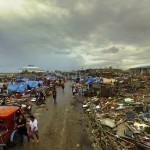
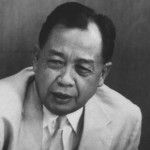

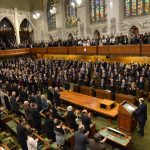
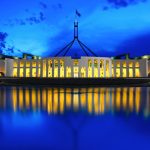
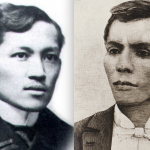
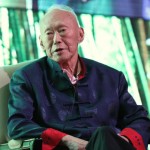
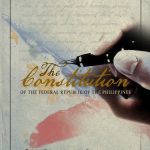
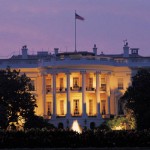
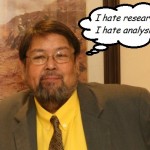
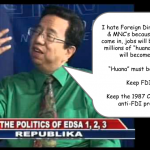
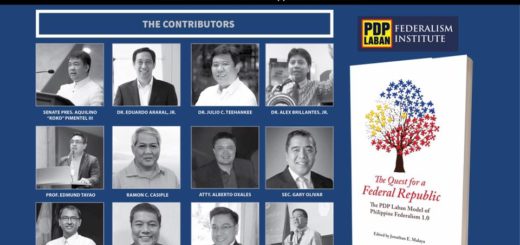
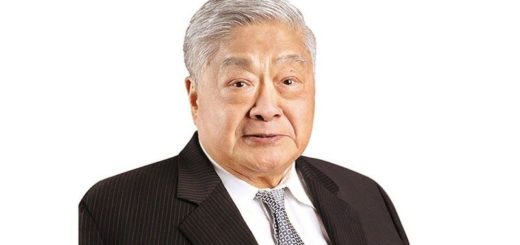

 I believe: This is a CoRRECT™ Video with a very positive message
I believe: This is a CoRRECT™ Video with a very positive message Walang Natira: Gloc-9's MTV Rap about the OFW Phenomenon
Walang Natira: Gloc-9's MTV Rap about the OFW Phenomenon